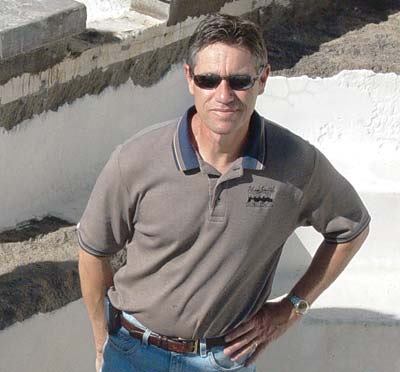After introducing himself to the California Senate’s Labor Committee, Alan Smith produced a number of bids from his company.
Each job had been lost to a contractor showing a workers’ compensation exemption, he explained to the assembled lawmakers.
The president of Alan Smith Pool Plastering in Orange, Calif., estimates that he’s already lost $1.5 million in business this year to the underground economy.
“How do you run a plastering company with no employees?” Smith asked a day after his June 23 testimony highlighting the impact of unlicensed and illegitimate contractors.
“We’re dying on the vine, and I have to come up here and beg [legislators] to enforce the law,” he added.
Smith’s five-minute, off-the-cuff presentation before committee members preceded a meeting with the governor’s top policymakers to further promote AB 2770. This proposed legislation would establish standards that trigger an audit of wages, hours and working conditions of employees in an effort to crack down on the underground economy.
While lawmakers seek to galvanize support in Sacramento, Smith now will work to develop a coalition of affected trade groups and associations to lobby on behalf of AB 2770’s passage.
Currently, at least 60 percent of subcontractors in the state’s pool industry likely are operating illegally, Smith estimated. As a result, his firm’s profit margins have shrunk by two-thirds over the past few years, he said.
“I’m losing bids by 10- or 15 percent because these other guys aren’t paying overtime or workers’ comp. insurance,” Smith explained. “Trendwise, I think that in three to four years, guys like me will be out of business, or only doing commercial work. It’s just not sustainable.”
Approximately eight months ago, a pair of state assembly members — Bill Monning, D-Santa Cruz, and Bill Berryhill, R-Modesto — took up the issue after meeting with Smith. They subsequently introduced AB 2770 to help prop up legitimate businesses.
The bill also would provide revenue for a state looking at a $19 billion budget crisis. The underground economy is estimated to generate up to $150 billion a year, much of it untaxed.
“We need to prove that no community is a haven for people who are breaking the law,” Monning said. “If we could do some high-profile enforcement actions, it’s going to drive some of these guys out of town, and it would send a strong message. But until people in authority are willing to really put that spotlight on the problem, it’s going to persist and grow.”
Resistance to the bill has come primarily from the California Chamber of Commerce and the Small Business Association, Monning said. The organizations voiced concern that it could be misused against law-abiding employers.
In response, Monning pointed out that the bill clearly targets those in the underground economy who flagrantly defy the law, as opposed to “employers who commit minor or inadvertent violations of existing law.”




